Parenting tips for making music every day! Here are a few fun ideas to add singing, dancing, and playing to your daily life with your child.
Music is a powerful learning tool for parents to use every day.
As I was belting out the song, “When the Saints Go Marching In,” while marching around the room, banging a drum with my four year old today, I was also thinking of 3 things.
- I am NOT a good singer – but oh well – making music with my child has language benefits.
- I am NOT a talented musician – but, oh well – letting him feel the beat with his marching feet and hear my steady drum beat lets him begin to grasp the rhythm of words.
- This music stuff is really good, I should share it with our readers. Wait, I am NOT the one to be sharing parenting tips for making music with your child every day – time to bring in the experts.
And then he stopped marching.
I focused on him and only him.
“What did the words mean?” he quizzed me.
“I don’t understand what you are asking.” I answered.
“Who are the saints? Why are they marching? When was this song written…”
And the importance of music rained down on me in the form of a preschooler’s questions. Often as parents, we forget how the simplest things can be of such high learning value. MUSIC is a powerful learning tool and one that we at The Educators’ Spin On It feel strongly about.
So without further adieu, I asked an expert in the field of musical education if she would share some parenting tips to help us “Make Music Every Day!”
Disclosure: This post contains Amazon affiliate links.
Making Music Every Day
By Lacey Cupp
Like most parents, my life is busy. Very busy. And I only have one child! I’m a full-time working mom of a 2-year-old with a daily routine of getting myself and our daughter out the door, putting in a long day teaching middle school, cooking, cleaning, doing laundry, grocery shopping, snuggling, and much more.
With a busy life, it’s easy to overlook great opportunities to enrich your child’s world with culture, art, music, and more. But, my experiences over the years as a music teacher of varying age groups make incorporating music into my toddler’s day a natural occurrence.
I’ll highlight some of the music-making moments we share on a regular basis. Maybe you will find these same ideas can be worked into your busy life, too.
First, some helpful hints and tips:
- You don’t have to be a musical prodigy to make music with your child. Sing, dance, and play instruments in your own way regardless of your ability level or confidence level. Let your hair down and have fun!
- Remember that children’s voices are naturally pitched higher than most adult voices. When singing with your child or modeling for them, sing in a higher range than you might normally use. Your child will be more likely to sing on pitch with you.
- Follow your child’s lead! Children love to have their musical ideas acknowledged and mimicked. If your child claps to the beat, copy and encourage.
- Don’t expect your child to maintain a steady beat or match pitch from the very beginning. These are difficult skills that take lots of experience to develop. Remember, too, that small children have a faster heart rate than adults. Therefore, their natural tendency is to keep a faster beat than you and I, until their musical skills become more advanced.
There are a million and one ways to make music with your child throughout the day.
Here are just a few ideas to add singing, dancing, and playing to your daily life:
- Start the day with a song! Whether a “good morning” song or something you and your child enjoy, greet her with a happy tune.
- Make up rhymes or songs for difficult activities. Getting a toddler dressed or changing a wiggly one’s diaper can sometimes be a struggle. Make the unpleasant parts of your child’s routine enjoyable by using a familiar tune and changing the words to suit the moment.
- Incorporate made-up songs into playtime, too. For example, while rolling a ball across the room, sing “Roll, roll, roll the ball, roll it on the floor…” to the tune of “Row, row, row your boat”. You may surprise yourself with your creative rhymes.
- Have a dance party! After a long, difficult day, come home from work and crank up the tunes. Your child will get a kick out of dancing around the house and seeing her parents act silly. It lifts everyone’s spirit and even gets in a little exercise for the day!
- Turn found objects around the house into instruments. There are the traditional pots and pans, but don’t overlook other opportunities. Empty plastic containers and wooden spoons make great drums. A box of elbow macaroni makes a nice shaker. (Be sure it’s tightly sealed!) A plastic utensil rubbed along the teeth of a comb makes a cool scraper. The possibilities are endless!
- Listen to more than just “kid” music. Of course, listening to and teaching traditional children’s music is very important, but children need exposure to a variety of styles to develop good musical ears. You may be surprised that your child finds some of your musical selections enjoyable.
- Enroll your child in a music class. In many areas, there are a lot of options for group music making. Be sure the class is age-appropriate and taught by a trained, experienced teacher. Music classes for young children should be semi-structured with many opportunities for spontaneity and creativity. Classroom settings should be spacious, but not so large your child can roam away. The room should be well-organized and safe for little ones. These classes will not only give you and your child a special music time together, but will help to develop social, emotional, physical, verbal, and musical skills!
I hope you find yourself looking for every possibility to make music with your child. You don’t have to be raising the next Mozart to make music an important part of your everyday life. Children are naturally drawn to the joy and creativity of singing, dancing, and playing. Make music a priority to nurture this natural tendency everyday!
Lacey Cupp is a music teacher with a Bachelor of Music Education degree from Missouri State University and a Master of Music Education degree from the University of Florida. Her teaching experience includes seven years in the elementary music classroom teaching Pre-K thru 5thgrade and three years teaching middle school choir. Lacey also operated a Kindermusik studio for three years, teaching children ages 0-7 and their families in a group setting.
THANK YOU Lacey for sharing these helpful parenting tips with us.
For even more music every day ideas here at The Educators’ Spin On It, stop by these great posts:
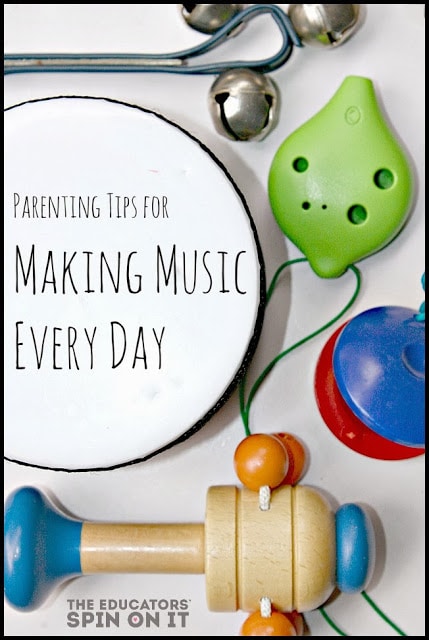






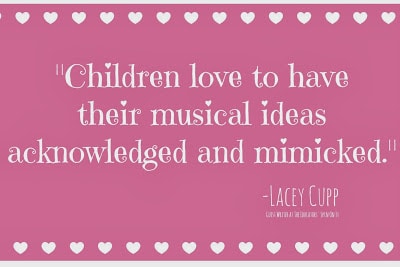

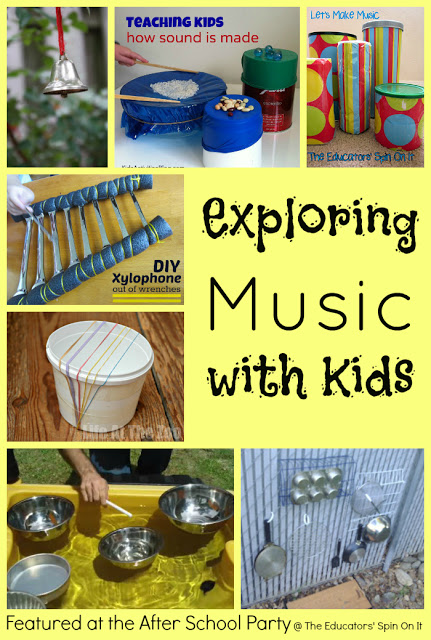
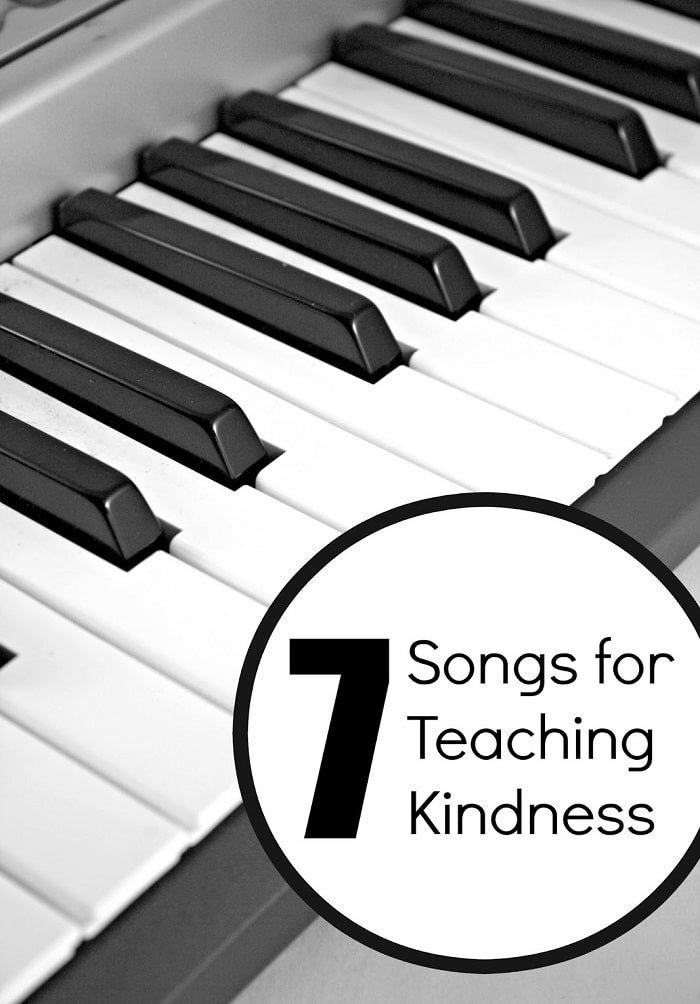
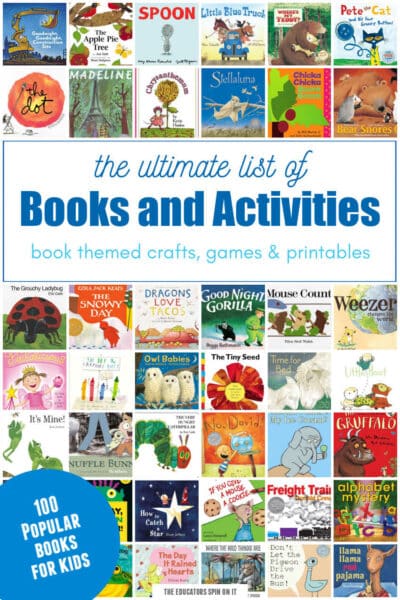
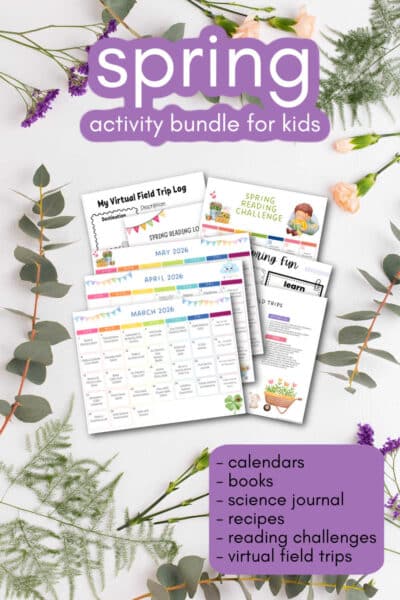
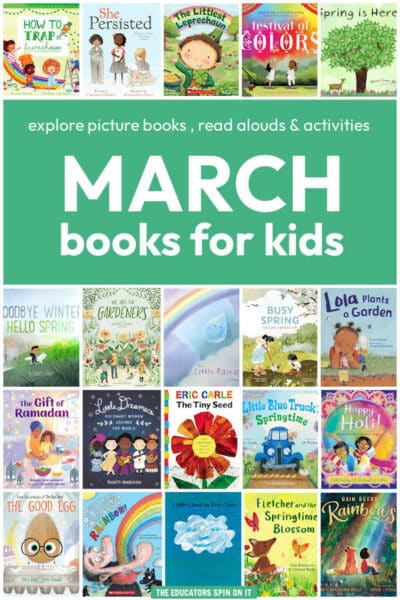
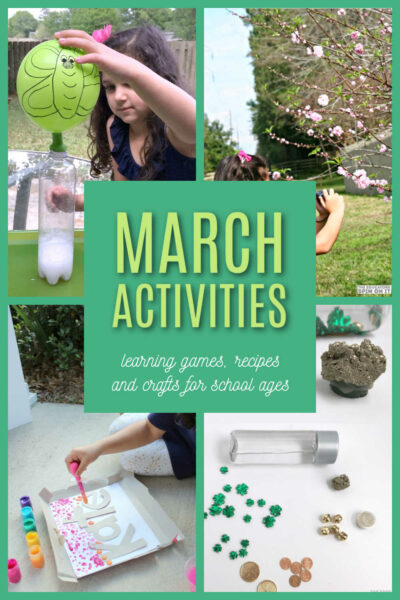


Parenting Tips for Making Music Every Day is
the very best article on theeducatorsspinonit.com